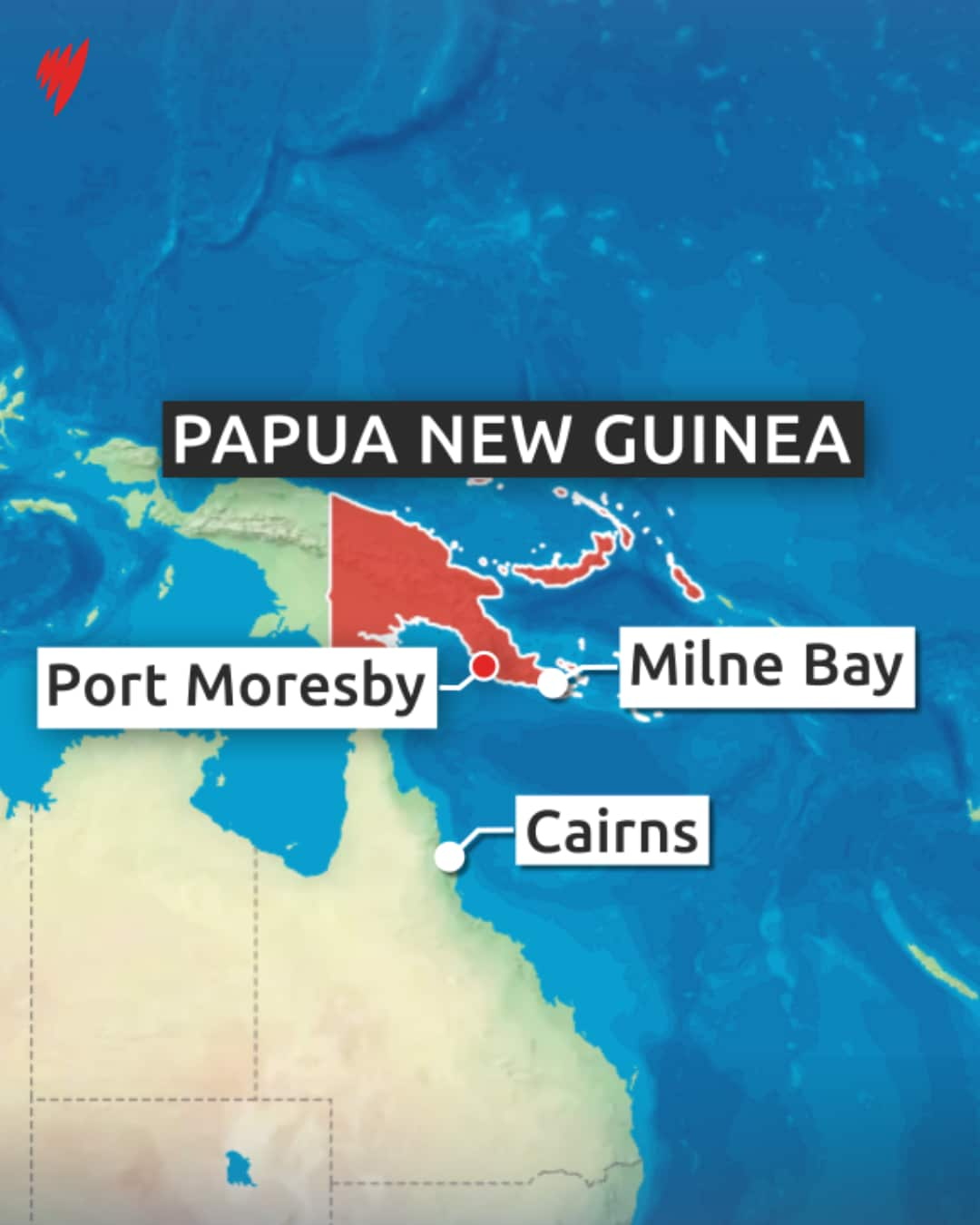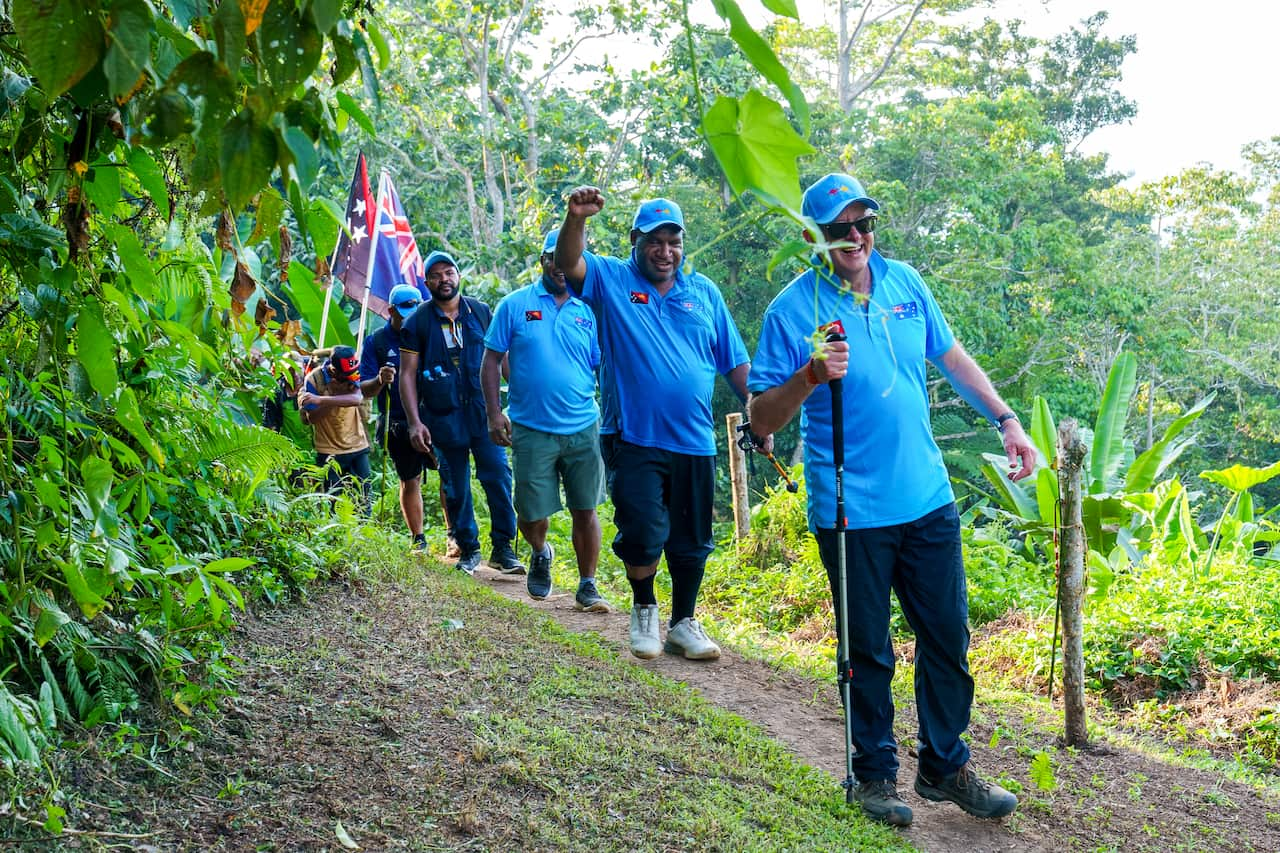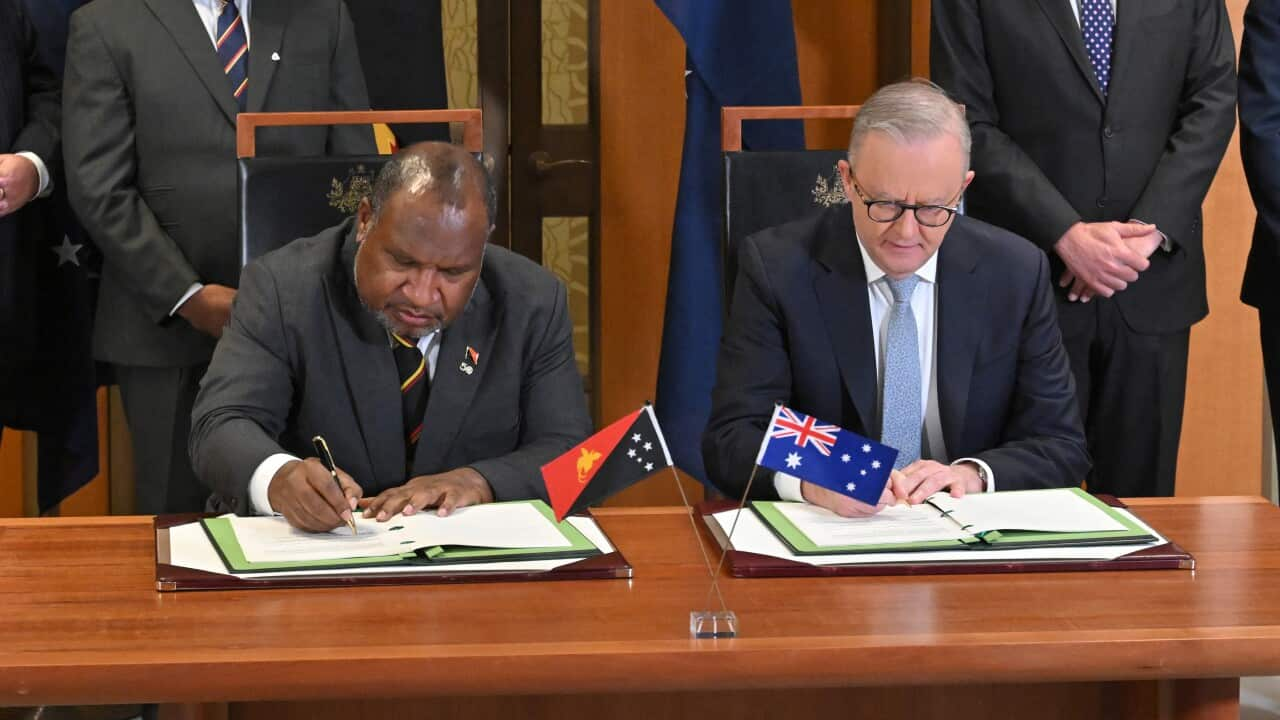Australia has entered into its first alliance in 70 years, elevating the relationship with Papua New Guinea in hopes of improving regional security.
The Pukpuk Treaty, named after the local word for crocodile, includes a mutual defence pact that commits either nation to helping the other in the event of an armed attack.
Prime Minister Anthony Albanese heralded the elevation of Papua New Guinea-Australia relations on Monday, stating the two nations were joined "as neighbours, as mates, and now as allies".
"This alliance of equals reflects our common commitment to a more secure and stable region. Above all, it is founded on the friendship between our peoples," Albanese declared following the signing of the Pukpuk Treaty in Canberra.
It was warmth mirrored by PNG Prime Minister James Marape, who referred to Albanese as "my brother, my friend".
Marape said Australia is PNG's "security partner of choice", emphasising that despite a commitment for its citizens to serve with the Australian Defence Force (ADF), it was a "construct of peace, not of war".
"This treaty was not conceived out of geopolitics or any other reason, but out of geography, history and the enduring reality of our shared neighbourhood," he said.
Albanese was unable to sign the deal, initiated by PNG, when he visited Port Moresby last month due to the nation's independence celebrations. Although formally signed on Monday, the treaty still requires the ratification of both parliaments.
So what does the treaty entail, and what does it mean for regional security?
What is the PNG-Australia treaty?
Australia has been providing training, infrastructure, and defence funding to PNG since its independence from Australia in 1975.
The treaty will elevate this ongoing commitment, providing closer military integration and consultation and investment in modernising the PNG defence force, as well as giving up to 10,000 PNG nationals a pathway to serve in the ADF.
It will also impose mutual support obligations if either country comes under attack, with Article 4 including the commitment the nations will "act to meet the common danger".
Jennifer Parker, an expert associate at the Australian National University's National Security College, says this is "very significant".
"That is not something that is written into the agreements with many of the countries that we have," she told SBS News.
The only other treaty to commit Australian forces is ANZUS, signed by Australia, New Zealand and the United States in 1951.
It was invoked by former prime minister John Howard following the September 11 attacks in 2001, engaging Australian troops to fight in Afghanistan.
What is the significance of the treaty with PNG?
Parker said China's increased focus on the Pacific has "generated a sphere of competition", with the treaty demonstrating Australia is PNG's preferred security partner.
"The ability to have Australian assets operating out of Papua New Guinea, and the ability of PNG and ADF personnel to operate more closely together, will be critical to protecting Australia's security," she added.

Ian Kemish, adjunct associate professor at the University of Queensland, recalled how Australian and PNG forces fought in the Battle of Milne Bay against the Japanese in 1942, to emphasise the geographic importance of our closest neighbour.
"Given that it is our northern neighbour, it represents the northern flank, the moment when war came closest to Australia," Kemish said.
Kemish, a former Australian high commissioner to Papua New Guinea, highlighted PNG's strategic considerations include "security support, strengthening regional stability ... And lots of training and equipment".
Oliver Nobetau, project director of the Australia–Papua New Guinea Network at the Lowy Institute, said it's a milestone for PNG, which has "tiptoed" around an enhanced military partnership for years.
"It's taken five years to come to this decision, where PNG sees its own shortfalls in terms of how we can better protect its own sovereignty, but even also contribute to the region," he told SBS News.
"The decision that they've landed on is that Australia is the partner that can be trusted."
Is the Pukpuk Treaty a threat to China?
Former PNG military commander Jerry Singirok criticised the alliance, stating PNG was a "pawn" in a geographical battle for influence between the United States and China.
"It's a very, very cunning approach to use Australia as a proxy to the USA, which has global interests in relation to a threat from the north, that being China," he told the Radio NZ podcast Pacific Waves, urging caution.
However, Parker said the move "shouldn't be perceived as a threat to China".

"This is an area where Australia has naturally had security relationships in many ways," Parker said.
Kemish explains that Australia and China play different roles in the Pacific.
"China has not really indicated at all its preparedness to sort of play the kind of role that Australia plays from development events, the financial contribution through development is paltry compared to many other countries, not only Australia's," he said.
He highlighted that although not "problem-free", Australia's relationship with China is "strong and robust" and that the development would not have caught Beijing off guard.
"They might not have wished for it, but I don't think it's a big surprise."
For the latest from SBS News, download our app and subscribe to our newsletter.

